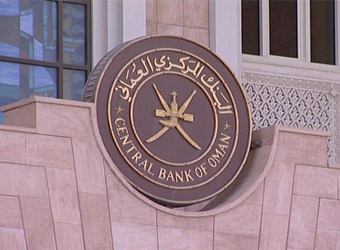Oman’s ruler replaced the head of the central bank after 26 years in the job as the Gulf Arab monarchy struggles to cope with the impact of low oil prices on its economy.
Sultan Qaboos, in a decree published by the state-run news agency late on Tuesday, appointed Tahir Bin Salim Al Amri as the central bank’s executive president. He replaced Hamud Sangur Al-Zadjali, who served in the post since 1991, making him the world’s second-longest serving central banker after Romania’s Mugur Isarescu, according to data compiled by Bloomberg.
Al-Zadjali, a Boston University graduate, was replaced hours after Moody’s Investors Service cut Oman’s banking outlook to negative from stable to reflect a reduction in the government’s ability to support the country’s banks as well as weaker economic growth and tightening liquidity.
With smaller oil reserves and less of a cushion in government savings than its wealthier neighbors, Oman is one of the most vulnerable countries in the Gulf Cooperation Council as lower oil prices pressure state finances. The budget deficit soared to more than 20 percent of economic output last year, according to International Monetary Fund data.
“The priority for Oman is on the fiscal side and they didn’t do very much on that despite the oil price deterioration,” said Dima Jardaneh, head of Middle East and North Africa research at Standard Chartered in Dubai. “They needed to cut spending in a significant way but they weren’t able to over the past two years,” she said. “I think they were still counting on revenue measures to kick in but that will take much longer to make a difference.’’
Under Al-Zadjali, the central bank has repeatedly said it would maintain its currency peg to the dollar despite mounting investor pressure. Forward contracts on the Omani rial that expire in 12 months soared to a record 1,700 points in January 2016, when the price of Brent crude sank to the lowest level since 2003. And though the contracts have since eased to 575, they are still the highest among the six-nation Gulf Cooperation Council.
Oman’s benchmark MSM30 Index of stocks has also been among the world’s top ten worst-performing indexes this year, retreating 12.3 percent.
The sultan also changed the central bank’s board of governors, appointing Sultan bin Salim bin Said al-Habsi as deputy chairman of the board for a five-year term. Source: Bloomberg
Source: Bloomberg


